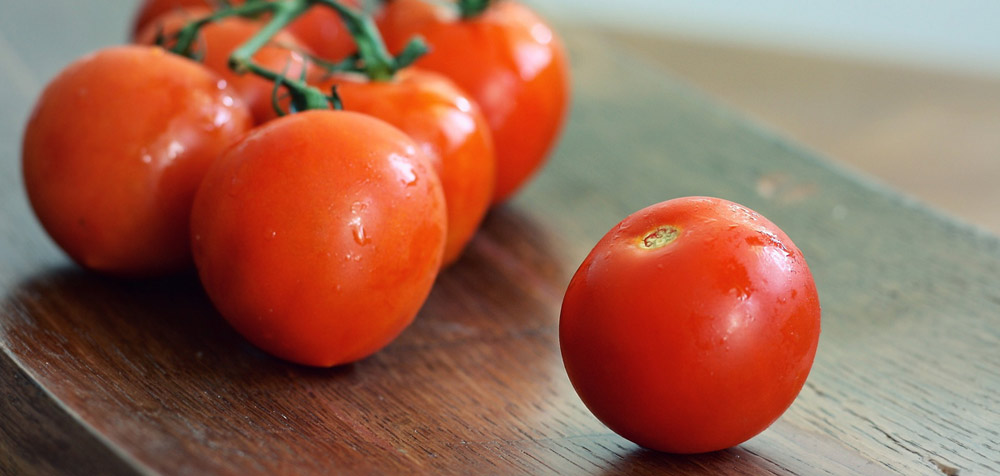
Benefits of tomatoes
Spring and summer are the perfect periods of the year for tomatoes to grow and mature. These vegetables play an essential role in the Mediterranean diet and they can be eaten in different ways: row, cooked or as a sauce. Not only are they versatile, but they have lots of benefits:
- their red color is given by lycopene, which has antioxidant and cancer-preventing properties. As our body doesn’t produce lycopene, we must absorb it from food.
Although other fruits and vegetables contain lycopene, is in tomatoes that we find its highest level.
An interesting fact: unlike many substances that we find in food, lycopene bioavailability doesn’t decrease during cooking. Consequently tomato sauces and purées that we find in supermarkets are healthy and rich in lycopene. However we should keep attention: do not buy canned tomato sauce, as they release bisphenol, a chemical substance, similar to a hormone, which is toxic for our body. The solution is to choose organic tomatoes sauce in glass jars. - they are rich in C, A, B vitamins, which unfortunately they lose during cooking.
- tomatoes contain lots of water (94%), consequently they are refreshing during hot months; they have 1% proteins, 0,2% fat, 2,8% carbs.
- they include mineral salts such as potassium, phosphorus and calcium, and organic acids such as lactic and citric acid.
- their skin contains fibers which help against constipation.
Organic tomatoes are better
Beautiful big, red tomatoes are as good as smaller ones?
Nowadays we all notice that big, red tomatoes are less tasty and contain less nutrients than before. That is due to the fact that today tomato plants are treated with diserbants and artificial fertilisers. Consequently, more and more people tend to buy organic tomatoes. However one question that we may ask ourselves is: Are organic tomatoes better even from the nutrient point of view?
Recent researches show that although organic tomatoes are smaller, their level of healthy nutrients is undoubtedly higher.
A study named The Impact of Organic Farming on Quality of Tomatoes Is Associated to Increased Oxidative Stress during Fruit Development and published on journal PLOS One was conducted with the objective of testing the hypothesis that tomato fruits from organic farming accumulate more nutritional compounds, such as phenolics and vitamin C as a consequence of the stressing conditions associated with farming system. The result: concentration in vitamin C and the total phenolic content are respectively 55% and 139% higher in organic tomatoes. According to researchers “Taken together, our observations suggest that tomato fruits from organic farming experienced stressing conditions that resulted in oxidative stress and the accumulation of higher concentrations of soluble solids as sugars and other compounds contributing to fruit nutritional quality such as vitamin C and phenolic compounds”.
Another American study underlines that today not only are fruit and vegetables less tasty than before, but they contain a lower level of vital nutrients.
Leave A Comment